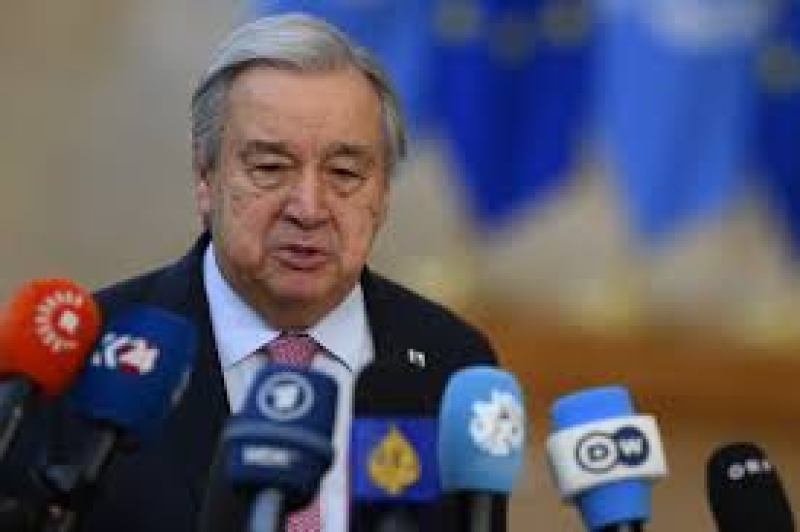- Israel Strikes Tehran with US Support Amid Nuclear Tensions |
- India Sees 9% Drop in Foreign Tourists as Bangladesh Visits Plunge |
- Dhaka Urges Restraint in Pakistan-Afghan War |
- Guterres Urges Action on Safe Migration Pact |
- OpenAI Raises $110B in Amazon-Led Funding |
Nobody Wins in a Trade War: UN Chief

UN Secretary-General Antonio Guterres has issued a stark warning that "nobody wins in a trade war," as tensions rise over new tariffs introduced by the U.S. government. The remarks were made through his spokesperson on Friday, following the signing of an executive order by U.S. President Donald Trump on Wednesday that imposed "reciprocal tariffs" on a range of trading partners.
The executive order includes a 10 percent "minimum baseline tariff" and the potential for even higher duties on select countries. The move has sparked widespread criticism, with critics pointing to the harmful effects on global trade and economic stability.
When asked about the UN’s stance on the U.S. tariffs, UN spokesperson Stephane Dujarric emphasized that in any trade war, "nobody wins." He raised concerns about the impact on the world's most vulnerable nations, which he said are the least equipped to cope with the economic fallout. Dujarric further stressed that escalating global trade tensions could derail progress toward the UN's Sustainable Development Goals, particularly in the areas of poverty reduction and economic growth.
In a related statement, the UN Conference on Trade and Development (UNCTAD) echoed these warnings, asserting that the newly imposed tariffs are likely to hurt the economies of developing nations. The organization cautioned that the global trade system is entering a precarious phase, threatening growth, investment, and development, with the most vulnerable economies bearing the brunt of the impact. As major powers adopt aggressive new trade measures, the risk of undermining global economic stability grows.
The international community is now watching closely, as the ripple effects of these trade policies may prove far-reaching, with the UN emphasizing the need for multilateral solutions to preserve the integrity of the global trading system.

